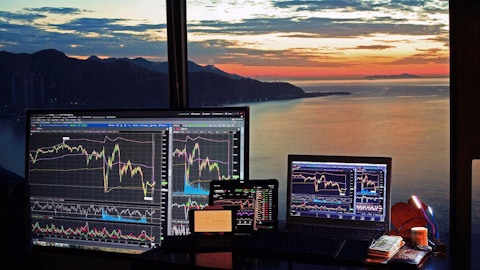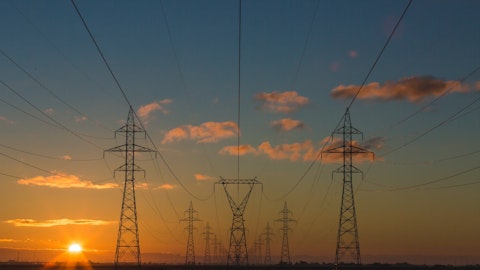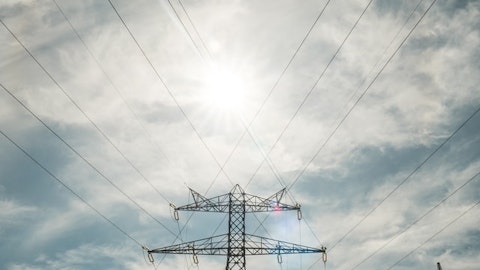But to your point, we now don’t have any P&L volatility associated with exposure to changes in interest rates, asset returns, et cetera. So it’s a great way to derisk future earnings. It’s a great way to continue to execute on our strategy of focusing on a set of high quality utility assets and really proud that we get this work done here in the fourth quarter.
Nick Campanella: Thanks for the color. And have a great long weekend.
Jason Wells: You too. Thank you.
Operator: Thank you. Our next question comes from Steve Fleishman with Wolfe Research. Your line is open.
David Lesar: Hey, Steve.
Steve Fleishman: Good morning, Dave. Good morning, Jason, Jackie. So just maybe high level, a little bit on Texas, political regulatory. Obviously, the backup generation has proven to be pretty valuable in the short time you’ve had it, and we still have this kind of disagreement on recovery. So just between that decision, legislature, next rate case, so how are you feeling about both commission and political leadership of recognizing the importance of certainty and the value of kind of what you’re doing?
David Lesar: Yes. Let me start, and then I’ll ask Jason to put his operations hat on and provide a little bit of color commentary. But I think if you – for those of you that sort of follow Texas closely, as the legislation – legislature, the Governor, Lieutenant Governor came into this session, there is two main topics, Gambling and the Grid. I won’t talk at all about Gambling, but there’s a big focus on the Grid in Texas, making sure that the Grid stays up with the economic development that is happening in the state. So I think you’re going to see sort of everyone rally around that aspect. Now what does it mean? It means different things for different people, obviously, in the state. The T&D companies want one thing, the generators, another, the legislature, another.
I think I continue to go back to sort of our main mantra in this area. We’re laser focused on customer affordability. So everything we do in and around capital deployment, O&M reductions, things that we’re going to push for in Austin are going to be focused and pivoted around customer affordability and that – those – that set of topics. So maybe with that, I’ll turn it over to Jason to see if he wants to say anything else.
Jason Wells: Yes. Thanks, Dave. And good morning, Steve. Overall, I would continue to echo to Dave’s comments on how constructive Texas is beyond the points that Dave raised. We continue to see significant amount of corporate relocations to the state. And here, more specifically, in the Greater Houston area, we continue to see now a 30 year track record of 2% annual average customer growth. So I think overall, it continues to be very constructive. More specifically, on the operational front, maybe just a couple of brief comments. We continue to – there’s a lot in place here in Texas that requires us to provide power to customers within 12 hours of a load shed event. We continue to operate under that standard. As we saw with Winter Storm Uri, load shed events can exceed the way the system design.
And so, these mobile generation units are critical to meeting our reliability and power quality requirements under Texas law. I think legislators understand that. I think the elected officials understand that. And more importantly, as we continue to see the impact of more extreme weather, tornadoes, ice storms, potential for hurricanes, I think the communities are starting to have a better appreciation of how we can strategically deploy these assets as we did to bring kids back to school after the recent tornadoes as we can power hospitals, before our restoration efforts, reconnect certain customers like that back to the Grid. And so, I think these are really powerful tools to help keep our communities energized during periods of inclement weather.





